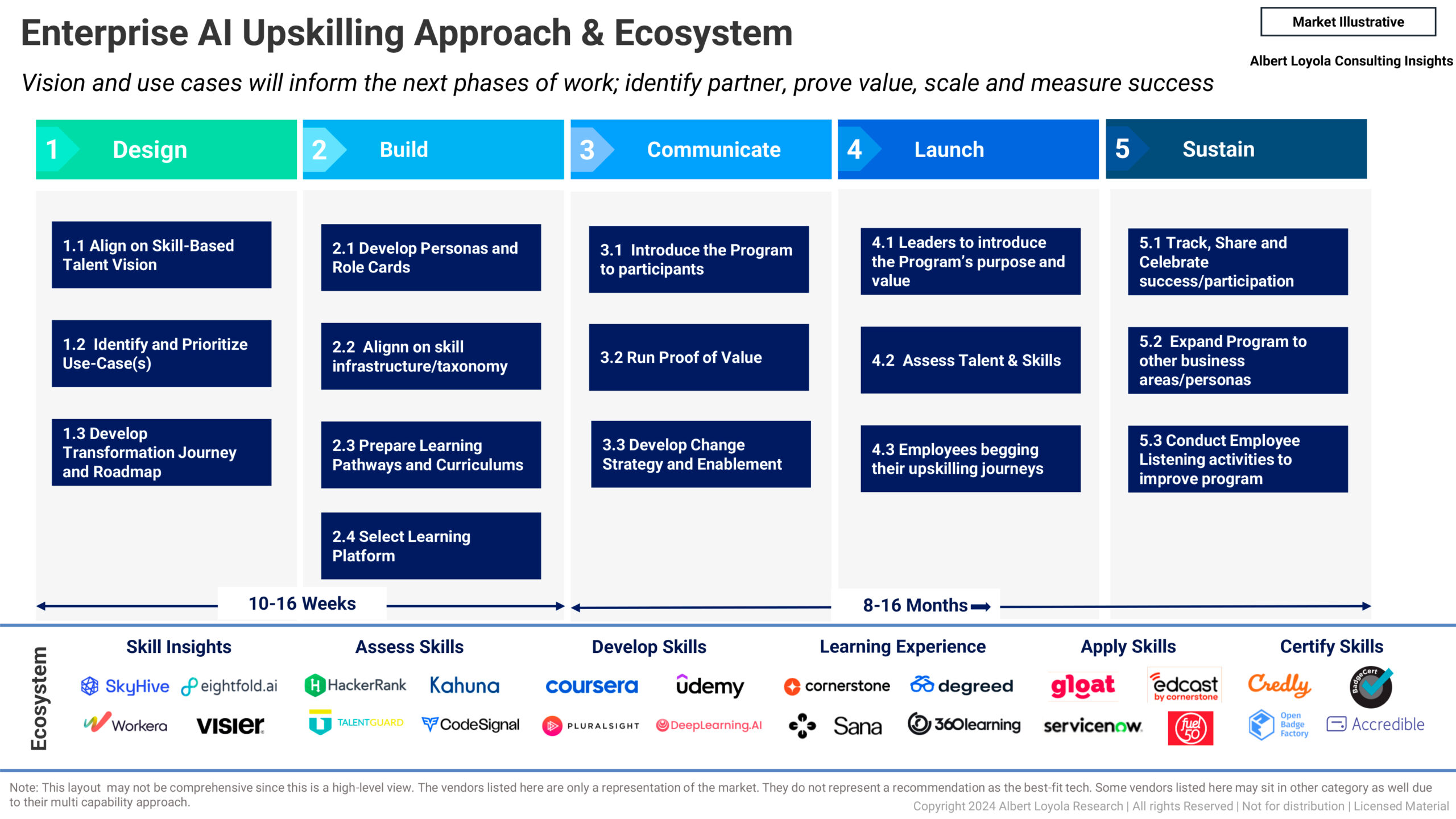
Market Insights
What is the right learning technology stack for enterprise AI upskilling?
Hello, and welcome back to my Blog! With 50% + of F500 companies accelerating spending in AI, learning and upskilling become critical to close skill

Albert brings global market research experience to help executives harness intelligent technologies, reinvent HR, re-skilling and employee experience across NAR, APAC, LATAM and EMEA regions.

Hello, and welcome back to my Blog! With 50% + of F500 companies accelerating spending in AI, learning and upskilling become critical to close skill

